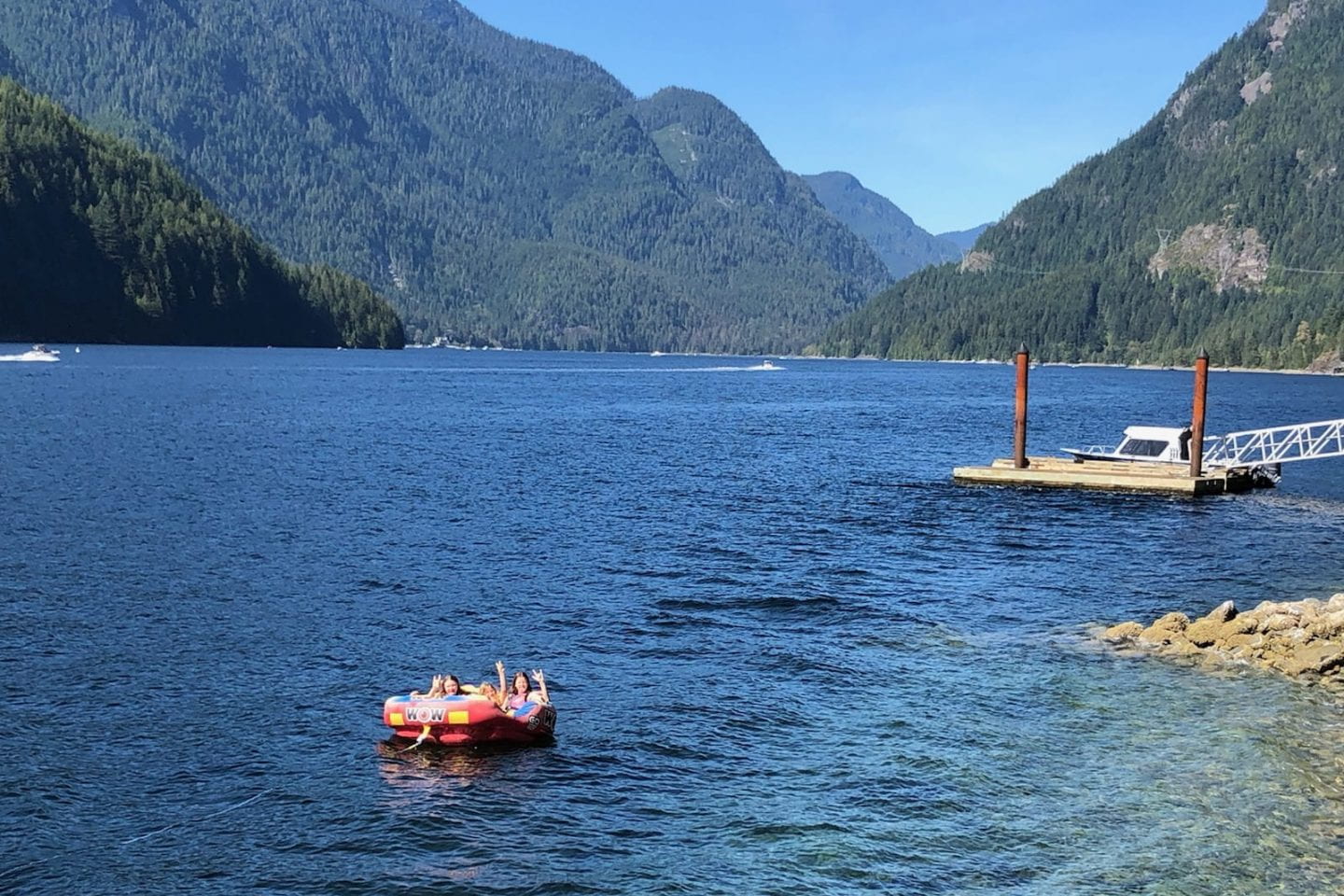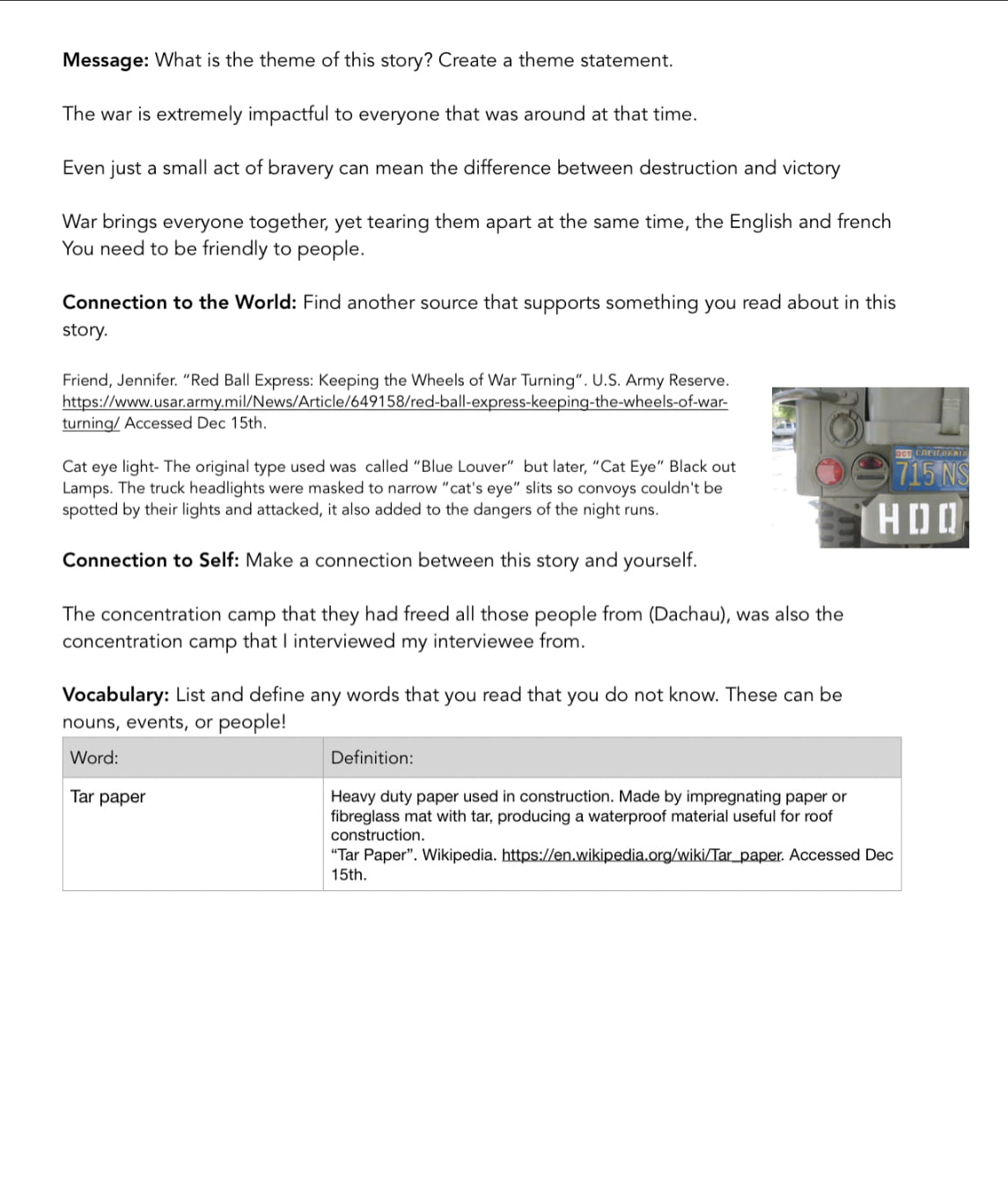The Youth in World War II
The Second World War was the biggest and most dangerous war than any other war in history, with over 75 million deaths (four times more compared to WWI) and involving over 30 countries.
This is what we’ve been learning about this last month for our newest project. This project’s driving question was “How might we use stories to understand the causes and consequences of WWII?”. In this project, we created our second episode to our podcasts, where we told stories through our interviewees, obviously talking about the causes and consequences in WWII, plus still connecting it to our own podcast topics. If you’d like to know how I got to there, keep reading!
Responding to Text: Have I constructed an original connection between myself, the text, and the world?
The first competency that we were being assessed on in this project was “Responding to Text”. The milestone that I found best represented this competency would be Milestone 3. In this milestone, we read or listened to three different texts in the span of 3 weeks. After completing sheets, at the end of the week, we discussed with our table groups the connections we had made through this text and extra research we had did on something we were interested in learning more about.
As an example, in week 3, where we listened to a video about a man named Harry Shaw who towards the end of the war, went to Dachau (the original concentration camp), to liberate the Jews that were left from that camp. The connection I had made to myself was that the person I had interviewed for my podcast happens to work in the education department there. I had also done extra research on “Cat eyes” that was was an effective technique used by the US military to transport heavy artillery at night without being seen by German planes above, which was my “connection to the world” I had made on that same worksheet.
I think that I did pretty well with both the connections in the sheets we completed and the discussions I had with my group. I did have some great points and connections to add to the discussion, but I did have some trouble summarizing the texts we had read and listened to form a theme statement, which I would have liked to improve on.
Using Evidence and Resources: Have I found diverse sources and evaluated them for their relevance, accuracy, and reliability?
The second competency we were being assessed on was “Using Evidence and Resources”, which I think would be best represented by milestone 2, our research. This milestone is pretty self-explanatory, so I don’t think I have to go into much detail explaining it, but it’s pretty much a section from our podcast planner that we essentially do research on our topic connected to WWII and what we think we want to include in our episodes. I was actually pretty proud of how my research turned out, it was very eye appealing, organized and had all the things that were required to be in this assignment such as 5 different sources and MLA citations.
Analyze Cause and Consequence: Who or what influenced events to occur and what were the consequences of those events?
The next competency that I will be talking about is “Analyzing Cause and Consequence”. Out of all the milestones, I think that this competency would be best represented by milestone 5, which would be our actual episode, because this idea of “cause and consequence” was really one of the key pillars of this project. Throughout the episode, I give out several examples strictly answering this competency (although, I wish I did talk more about causes). One of my main ideas that I discussed in my conclusion part of the episode was the fact that people living at this time that were also able to make it past all sorts of traumas or other sorts of effects after the war, made them very mentally strong. Especially if they were at younger ages, because as youth, it was harder for some to process, plus then having to live on the next 70-80 years or so with all sorts of flashbacks or traumas coming back to them. It’s just crazy to me, and learning about Magdalene’s story helped give me an even better insight to that. Also, if you’d like to hear more examples of cause and consequence, make sure to listen to my episode ;).
Global Collaborator: How might I use technology to connect to the world?
The final competency that we were being assessed on in this project was “Global Collaborator”, which for this project, I chose to talk about me finding my interviewee and getting the recordings. It was a bit of a hassle for everyone to get their interviews, since we had about a week to get them, because that was what was supposed to help us form our episodes. I had contacted the Anne Frank house and most of the people working at the Dachau Concentration Camp Memorial Site (which was the first and original concentration camp). I them found and made an interview with Maximillian Lutgens, who works in the education department at the memorial. We had two 30 min interviews, the first one, I had asked the questions I originally prepared, but later decided that I wanted to go through a different path and learn more about his grandparents that were around during the war, where is when I found Magdalene’s story.
To finish this post off, I really had fun learning about World War II, because I didn’t know vert much about it before. This project actually got me pretty interested to learn more about the war, so I’d like to continue to do other research and watch movies. I was pretty proud of the way my episode had turned out, I just wished I had talked more about Magdalene’s life before the war and the causes of the war, because I only had about one paragraph on it. I was also pretty proud of the way I was able to connect my podcast topic to this project’s topic by turning this inspiring story into a message (where I got a lot better at from the Text Discussions). At the end of the episode, I had said that hearing such inspiring stories about these teenagers who got through living in such a brutal time, proves that you’ll be able to get through any struggle you may be going through, so never doubt your own strength.
Anyways, make sure to listen to my episode bellow and I will see you in my next post. See ya!





